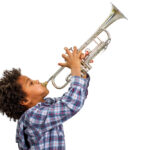
Rachel Symons summarises a recent study, which shows that poor connectivity between brain regions may be an indicator of non-suicidal self-injury in young people.
[read the full story...]
Rachel Symons summarises a recent study, which shows that poor connectivity between brain regions may be an indicator of non-suicidal self-injury in young people.
[read the full story...]
Holly Crudgington reviews a qualitative study that examines the self-harm and suicide contagion effects of the Blue Whale Challenge on YouTube and Twitter.
[read the full story...]
Hilary Shepherd summarises a recent randomised controlled trial comparing music therapy to music listening for children with autism spectrum disorder.
[read the full story...]
In her debut blog, Jo Lockwood summarises a qualitative paper which finds that young people want GPs to initiate conversations about self-harm and suicide in primary care.
[read the full story...]
Shirley Reynolds reviews a records study which finds that around one third of children and young people who die by suicide have no explicit prior risk.
[read the full story...]
In his debut blog, Jack Wainwright explores a study that finds an association between eating disorders and suicidality in US college students.
[read the full story...]
Julia Badger summarises a study which found that primary aged school children had different reasons for attending counselling to secondary school children.
[read the full story...]
Sadhbh Byrne and Jo Robinson review a recent mixed methods study exploring young people’s views on harm minimisation strategies as a proxy for self-harm.
[read the full story...]
Hearing voices is common in young people. In this #CAMHScampfire blog, Douglas Badenoch looks at a new qualitative study of the experiences of people aged 13-18 who hear voices but who do not have any clinical diagnosis.
[read the full story...]
Will Koehler summarises a ‘netnographic’ study which provides a clarion call to those working within trauma-treatment systems to examine their practices with young people from a multi-system perspective.
[read the full story...]